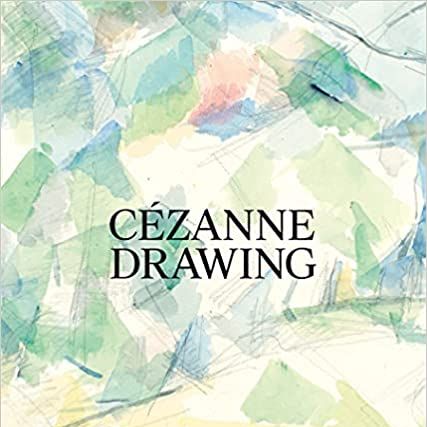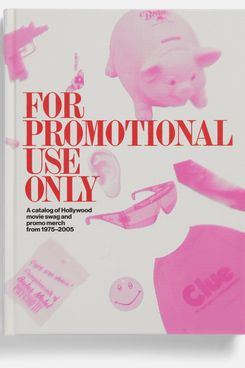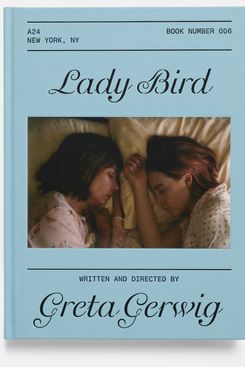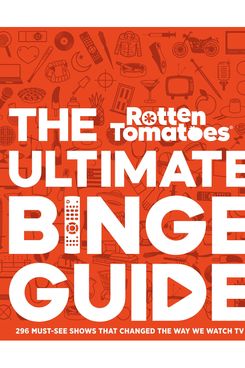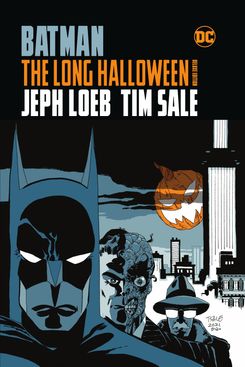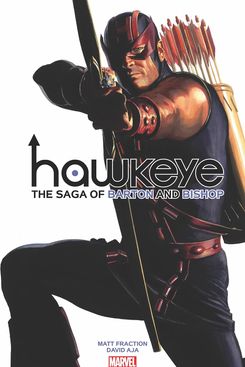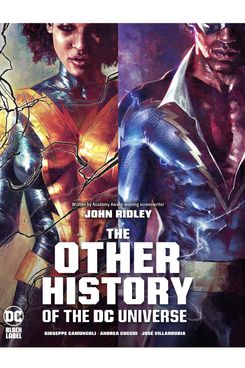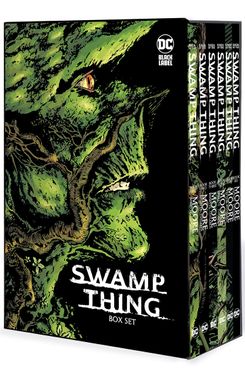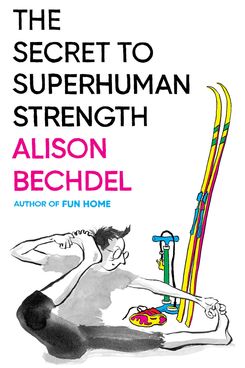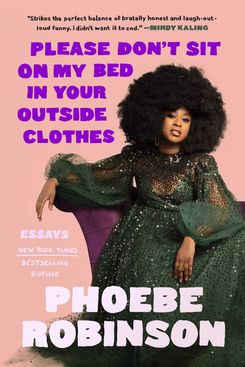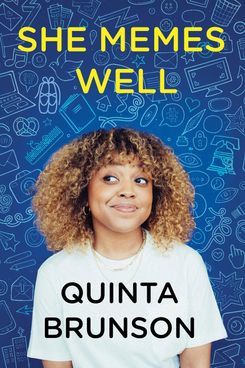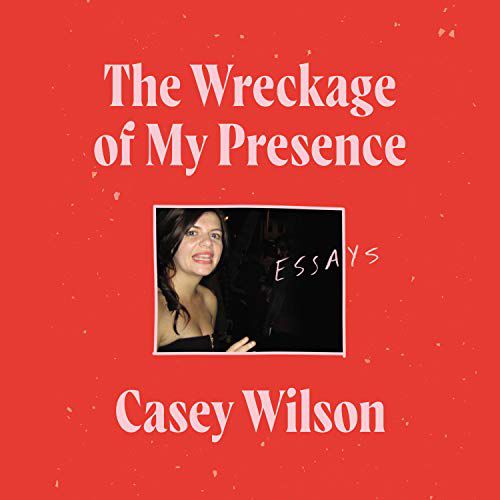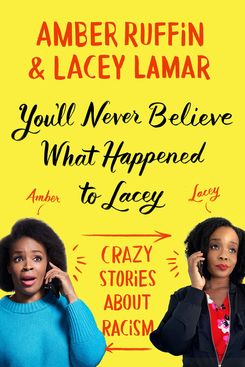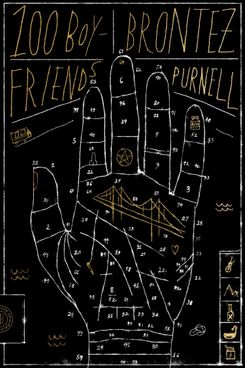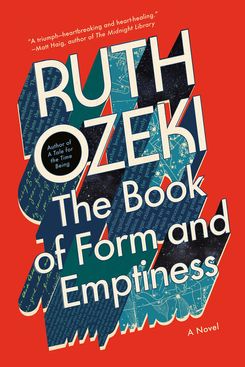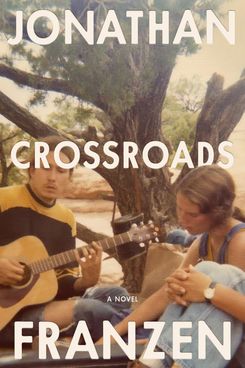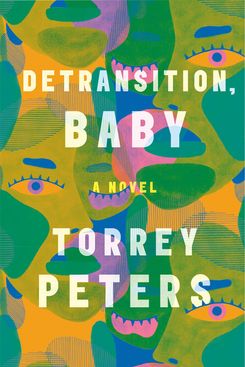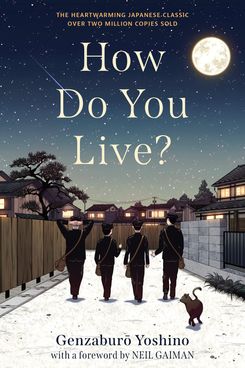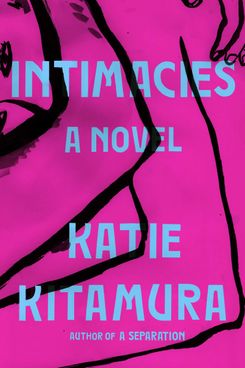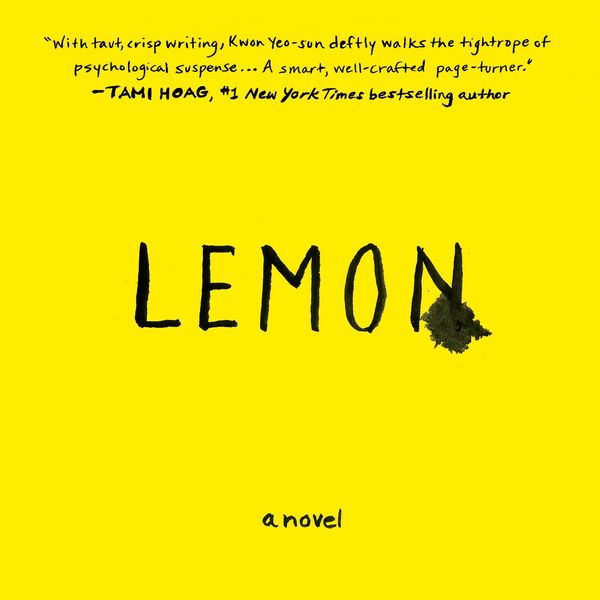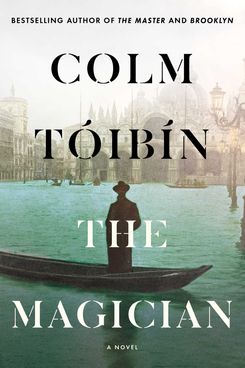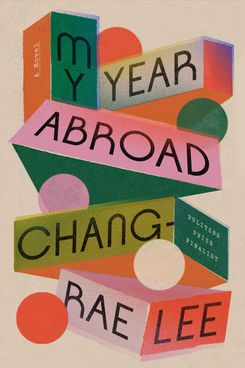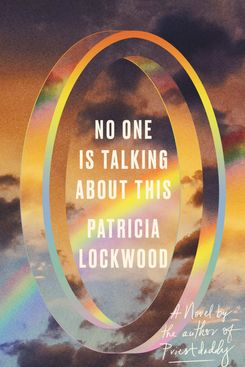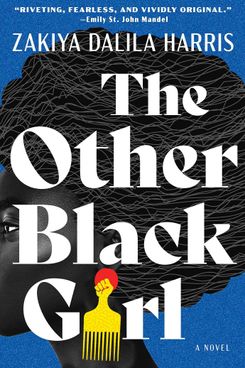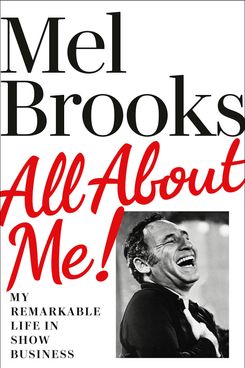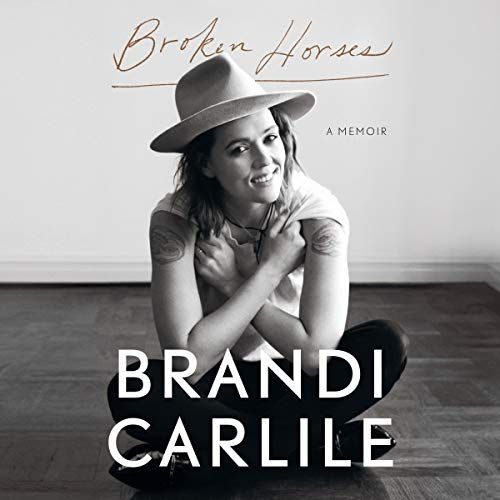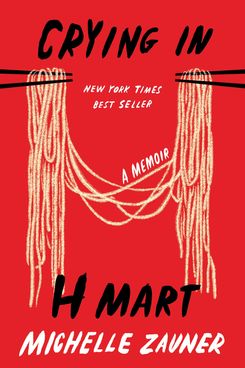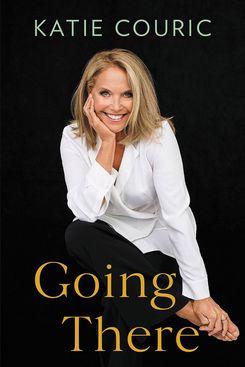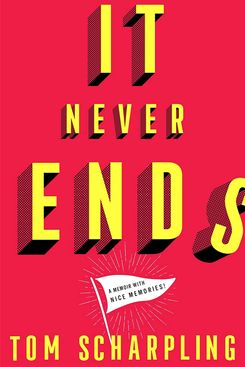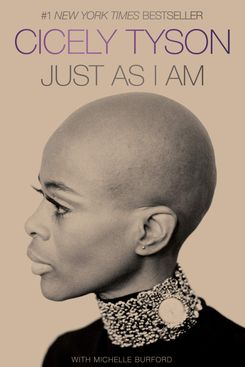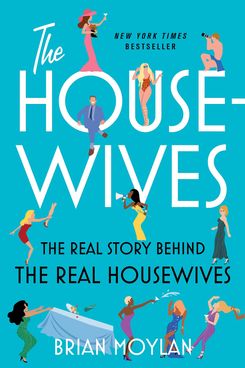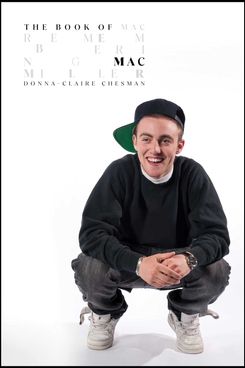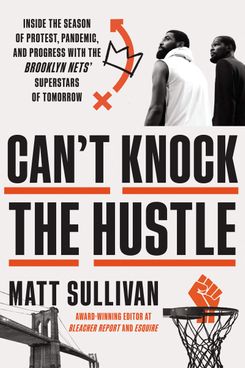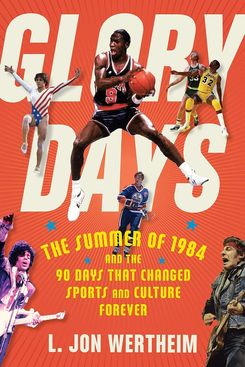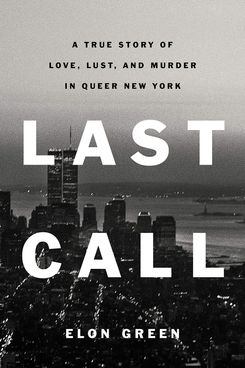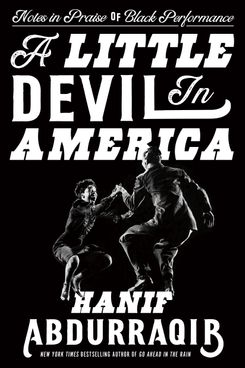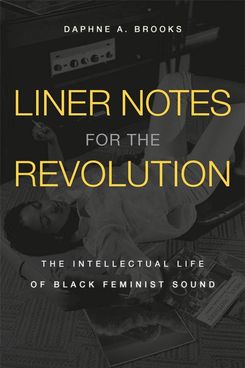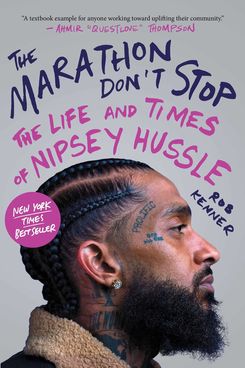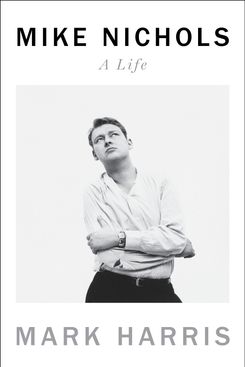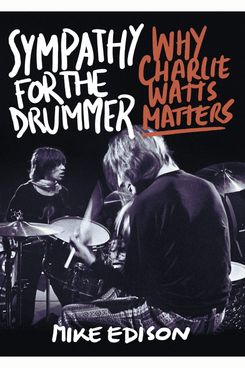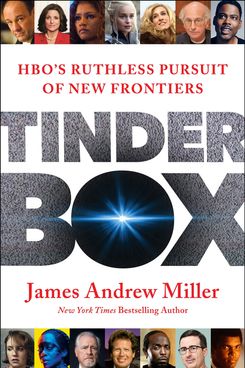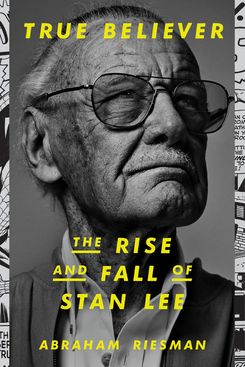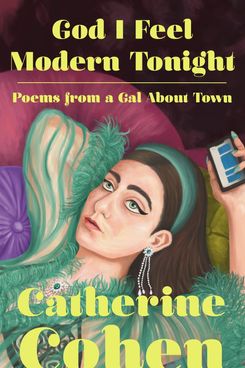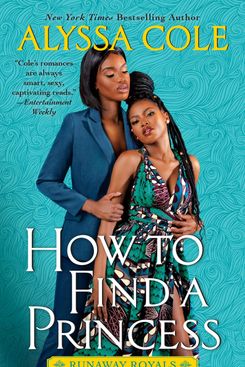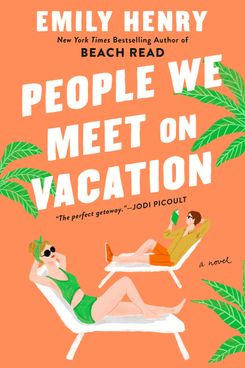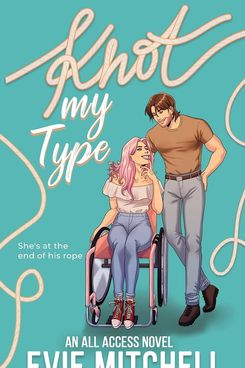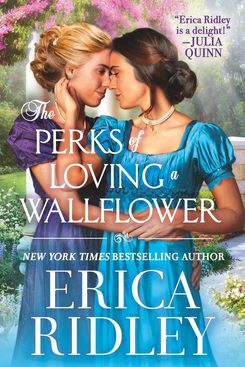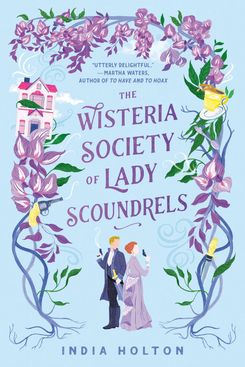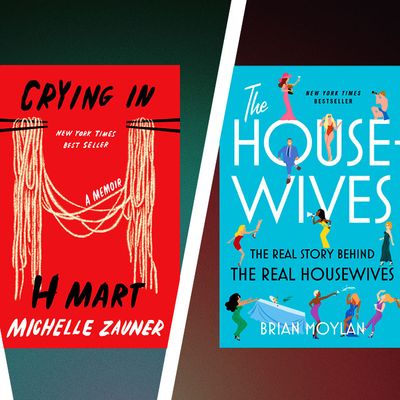
Remember when you were a kid and you’d feel around the edges of your wrapped presents, dreading the telltale outline of a spine and pages? Well, you’re older and wiser now, and with age comes the understanding that books are the perfect gift. They’re by far the best bang for your buck when shopping for something personal. “I know you love the Rolling Stones — here’s Charlie Watts’s biography!” for example. With such a wide range of books released just this year, from gossipy memoirs to comedic poetry and everything in between, there’s sure to be something worth reading for everyone on your list — even for those of us who just want to look at the pictures.
Books that Vulture has reviewed, excerpted, interviewed the author of, or otherwise covered this year are indicated with a ➽.
Coffee-Table Books
Upon seeing the Museum of Modern Art exhibition of 280 Paul Cézanne works on paper, Senior Art Critic Jerry Saltz wrote the show “demonstrates that this immensely influential artist took us to the furthest shores of seeing in his drawings and watercolors.” Cézanne: Drawing allows you to take the incredible collection of images home to both further marvel at and consider. Many pages show the initial sketches, scribbles, simple paintings along with their corresponding masterpiece, allowing you to picture the thought process of the turn of the 20th century genius. It’s an invigorating process.
Back to Saltz: “Cézanne doesn’t so much look at and render things in the world as aspirate them, atomize and liquify atmosphere, light, and form. Cézanne’s drawings record the split second before we make sense of, organize, identify, and define what we see — before we make metaphor, analogy, and meaning, when we are just seeing. It’s a kind of sensual nano-physics. His drawings are two-dimensional panic rooms where he pieces things together without fixity.” —Jesse David Fox
If you’re the type of person who scours eBay for crew gifts, exclusive posters, and other associated movie swag, this book will make you swoon with a mixture of excitement and jealousy. The folks at A24 (who are themselves doing the most when it comes to promo merch; see below) have compiled this book of silly, pretty, and downright creepy products that studios have used to promote their movies. They even held an auction alongside the book’s release, selling items from its pages, but the lots have already closed. Sorry to Howard Ratner. —Emily Palmer Heller
“Miyazaki’s world are created not just for the eyes but for all the senses,” reads a passage from the book published in conjunction with the 2021 inaugural exhibition at the Academy Museum of Motion Pictures in Los Angeles. “His sceneries are immersive and experiential, realized through a passion for detail paired with an observational perceptiveness that allow us to experience the meaning of the landscape or the climate on a much deeper level.” Made up of concept drawings, character designs, storyboard, and productions cells spanning over his legendary, decades long career, the book offer an uncommonly full picture of Miyazaki’s vision. Besides a fascinating, informative read, it is just a lovely place to spend some time in. —JDF
If you or a James Bond fan you know is struggling with the wrap of Daniel Craig’s run as the character (and/or the events at the end of No Time to Die), consider this complete history of 007’s iconic car a potent 5.15-pound salve. The 260+ page book opens with a brief history of Aston Martin before launching into a meticulous movie-by-movie recap of the DB5’s role as Bond’s ride of choice. It’s packed with behind-the-scenes photos, storyboards, and production insights that capture the various mishaps and modifications — so many gadgets — experienced by the car over the course of its 58-year tenure, deepening even a casual fan’s appreciation of the only constant in an ever-changing Bond-verse. —Neil Janowitz
Let’s face it: A24 merch is chaotic good. Some days I resist the urge to purchase something, and some days I click “buy” so quickly it’s embarrassing. Case in point: It took mere seconds for me to order my own Lady Bird screenplay book. It’s just so beautiful! Not only does it include Greta Gerwig’s damn-near-flawless screenplay, it also has stills of Sam Levy’s lush cinematography, touching essays, a foreword by Stephen Colbert of all people, and — my favorite part — Gerwig’s personal letters to Dave Matthews Band, Alanis Morissette, and Justin Timberlake, all wrapped up in a pretty powder-blue book. It’s a lovely keepsake and coffee-table book that everyone is going to want to thumb through. (And if Lady Bird isn’t your cup of tea, A24 has other gorgeous screenplay books as well.) —Savannah Salazar
Ignore the odd framing as “The Ultimate Binge Guide” (do we really need someone to help us “discover” The Sopranos??) and focus on the insight into the evolution of television, from the golden age through our post–Peak TV era. Featuring essays by the Rotten Tomatoes editorial team, as well as critics like Manuel Betancourt, Robert Daniels, and Kimberly Potts, this coffee-table book will start plenty of fights over what constitutes an antihero, whether Friends holds up, and whether the multi-cam sitcom can ever be revived. You know, your typical fun holiday activity. —EPH
Comics
Longtime collaborators Jeph Loeb and Tim Sale turned in one of Batman’s finest detective comics with The Long Halloween, a vibrantly illustrated page-turner that features practically every notable Batman villain in a year-spanning whodunnit. The Long Halloween’s been compiled in several editions, but this latest hardcover is slimmer, lighter, and much more affordably priced than the DC’s oversize Absolute Editions and actually includes some more supplementary art, the original series pitch, and even photos of tie-in toys. You could do worse if you wanted to own a series that inspired Christopher Nolan and Matt Reeves’s Batman films, as well as an excellent two-part animated film released earlier this year. —Eric Vilas-Boas
The Marvel Cinematic Universe has always had the Marvel comics at its disposal, but the latest MCU/Disney+ series, Hawkeye, is shaping up to be a significant adaptation of writer Matt Fraction and artist David Aja’s 2012 to 2015 Hawkeye comic run, the first comics to pair Clint Barton with Kate Bishop. And why wouldn’t it be, when Fraction and Aja’s brilliant series is lauded as one of the best modern comic runs by fans? While many superhero comics explore cosmic worlds and life-ending wars, Hawkeye: My Life As a Weapon brings readers down to the street-level problems of Barton and Bishop — a couple of messy heroes whose main powers are their archery skills and wit. It’s an engaging and hilarious read, and I’d be remiss not to tell you that one issue is completely told from Lucky the Pizza Dog’s perspective. Plus, this is the first time in a while that the physical copy of Fraction and Aja’s Hawkeye is being re-released. No joke, I checked online for this run a few months ago to find it priced at around $300. But right now, Amazon has the complete Fraction-and-Aja run, along with a few extras, in a neat book called Hawkeye: The Saga of Barton and Bishop. Snag it while you can, or you could always try checking out your local comic book store. —SS
To understand screenwriter John Ridley’s (12 Years a Slave, American Crime) comic title The Other History of the DC Universe, you have to understand a little bit about History of the DC Universe — an attempt by comics creators in the ’80s to write out DC superheroes’ fictional, in-universe history. Ridley’s new book acts as an in-universe corrective to that, exploring the formative moments in its history through the eyes and ears of heroes like Black Lightning, Renee Montoya, Bumblebee, Katana, and more. When the series debuted, Ridley mentioned the desire to capture “my lived experience,” and in one set, the individual parts make a larger whole. —EVB
Alan Moore is best known for Watchmen, but his run on DC’s Swamp Thing was nearly as revolutionary. Not only did he flout the puritanical Comics Code Authority and add gothic pathos and an expansive eco-mythology to a one-note horror-comics character, Moore’s Swamp Thing went further. He pulled forgotten characters from the pages of yesteryear into new, mature scenarios that paved the way for Vertigo titles like Sandman and Hellblazer, as well as later books like Justice League Dark. Moore may have famously cut ties with DC, but his Swamp Thing run is a reminder of how much the company owes to his ideas. —EVB
In The Secret to Superhuman Strength, cartoonist (Fun Home, Are You My Mother?) Alison Bechdel examines her lifelong pursuit of fitness and how exercise colors her relationship with her body and the world around her. In a conversation with Vulture, Bechdel explained that she wanted to write about working out because, “I couldn’t think of anything else to write about that I felt some degree of passion about in a similar way. It’s this blissful, conflict-free part of my life where I am doing something fun. It occurred to me, Why not take that blissful, conflict-free thing, turn it into a cerebral project, and ruin it for yourself? So that’s what I did.” (Also, she draws the line at owning a Peloton.)
Essays
Comedian, podcaster, New York Times best-selling author, and head of her own production company, Tiny Reparations (which recently launched a publishing imprint), Phoebe Robinson knows a little something about being a boss. In an excerpt from her latest book of essays, Robinson offers her expert advice on leadership, writing:
Some leaders have zero interest in conquering the world; they just want to monetize a passion or skill set and have a nice living and be a part of their small-business community. Others have grand designs on changing the industry they’re in or leaving a mark on history or pushing the conversation forward. Whatever the case may be, just do your work and create a legacy you’ll be proud of, and if grit, determination, creativity, and the occasional fantasy about destroying your life in spectacular fashion are what’s needed to get the job done, you’re my kind of CEO.
Comedian, writer, and actress (A Black Lady Sketch Show, Big Mouth) Quinta Brunson understands social media better than most — she produced popular videos for BuzzFeed and regularly went viral on Instagram (well before front-facing comedy became the quarantine norm). As such, she knows the internet can be a terrible, terrible place. In an excerpt from her new book of essays, Brunson offers some advice on how to survive Twitter that essentially comes down to “Mind Your Own Damn Business”:
I honestly believe that Minding Your Own Damn Business is the salvation and pathway to peace that we all need. We, all of us, could stand to chill out and mind the business that minds us. If we spent half as much time concerned about our own villages, maybe the entire town wouldn’t collapse when one house was set on fire. Maybe we all would have the resources to help that house, because we’d been harnessing our own tools for months.
Casey Wilson is now known as a hilarious actress (Happy Endings, The Shrink Next Door) and podcaster (Bitch Sesh), but before she was starring in Apple TV+ originals, she supported herself by working as the personal assistant to a “very thin, manic, reflexive documentary filmmaker.” Wilson details this oddball time in her life, and what she learned from her former boss’s obsession with her weight, in an excerpt from her new book of essays:
It occurs to me now that Barbara had been trying to protect me from the world that had been so cruel to her. As a self-loathing woman, she could only act on her urge to love and shelter me by being cruel about my perceived vulnerabilities, which were actually her vulnerabilities. She didn’t want me to be sitting in the moment I was currently in. She knew what I didn’t yet know, which was that the world is cruel to overweight people.
When people shame you for your size, they succeed in reducing you to the smallest version of yourself emotionally. And I collapsed under that scrutiny. And made a decision. I realized if I wanted to do what I loved — perform and make people laugh — I needed to lose some weight. So I did. But not for them. For me. To protect myself. I chose to become a less visible target in order to shine. (Note: This choice was made because I am on-camera. If I were a teacher, I would sit my happy ass down, knowing I look FOINE!)
Sisters Amber Ruffin (The Amber Ruffin Show) and Lacey Lamar mine their experiences with racism for humor in this book of essays. In an excerpt from You’ll Never Believe What Happened to Lacey, they turn their attention to racism in the workplace. Lacey shares a horrible moment when she learned that the best supervisor she ever had thought the idea of sending laptops to children in Africa was hilarious. “The man who said the fewest racist things out loud had the deepest, most stank racist belief just festering in his heart.”
Amber, for her part, details the time her castmates and the owner of the theater she worked at (she doesn’t name the theater, but it’s Second City) dismissed her as a “diversity hire” in the Chicago Tribune:
This sent me into a white-hot rage. Look, that one guy saying that one idiotic thing that negates my talent is fine. People know him. They know he’s liable to say anything. Also, his feeling like that was a secret only to white people. I would’ve had money on him saying that out loud to my face by then. Hey, whatever it takes to make yourself feel better. But the owner of the theater in an article about whether or not he should have hired the only two minorities in the goddamn show? This insinuates that we aren’t talented! This is also something people love to do. They love to act like there were no Black people good enough. No one wants to be like, “Hmmm. I’ve never met a Black person I thought was actually good enough to be in my little show. Maybe I’m a piece-of-shit racist who can’t relate to anything a Black person says, judges them before they’ve said it, and thinks Black people are funny only as stereotypes, but when they’re stereotypes, I look down on them.” Honestly, I know this sounds crazy, but there are people who think, Black people just aren’t good at this. About, like, a ton of stuff. But COMEDY? We literally use it to survive. I’m doing it RIGHT NOW.
Fiction
Oakland-based artist Brontez Purnell’s first book with a major publisher is this hard-to-categorize (collection of interconnected vignettes? Messy autofiction anthology?) novel. In a conversation with Vulture, Purnell explained the title, saying the book “doesn’t really deal with a hundred boys — that just sounds like a horrible rom-com. It’s really about how, every time you date someone, you’re left with a ghost of someone, and that person’s left with the ghost of someone, and we’re all just carrying around the baggage of everyone’s relationships, even when we deal with each other.”
In her profile of the 65-year-old author and Zen Buddhist priest, Vulture’s Helen Shaw describes Ruth Ozeki’s books as, “not didactic, but they are useful; they are not mission-driven, but they are richly moral.” Her latest novel, about a teenage boy who starts to hear the voices of objects around him — including the very book you’re reading — is oddly useful for this point in our history, despite Ozeki starting it over eight years ago. “If time is part of healing,” Shaw writes, “sorting through matter — through stuff — is part of mourning. For the past 18 months, all of us everywhere have been surrounded by and penned in by our possessions as never before. How can we live among so many things and not be stifled?”
Jonathan Franzen’s latest novel — or, more accurately, the first volume in a planned three-part “super-novel” — is his first book not set in the present day. (Crossroads begins in 1971 and ends in 1974.) In a conversation with Merve Emre for Vulture, Franzen explains this decision as twofold. “I had the wicked thought: People think I’m a family novelist. I’m not really a family novelist. But maybe, finally, I’ll write a book about a family. And to me, a family novel spans generations. You need to see how patterns replicate themselves.” The second reason was more practical: “I started writing a little more than a year into the Trump administration. One of the factors that inclined me toward breaking the book into three was that I could write an entire novel set in the past and not have to deal with the present so long as Trump was president. It felt like we were in a moment here in this country that I could not make sense of in real time.”
Torrey Peters’s debut novel follows three women (one trans, one cis, one trans who has chosen to detransition and live as a man) who are contemplating raising a baby together. For Peters, the experience of writing the book was, “a thought experiment for how to live as a trans woman,” as she told Vulture’s Lila Shapiro in her January profile. In that same profile, Peters’s book editors describe why they gravitated toward Detransition, Baby. Caitlin McKenna, a cis woman who was pregnant and had recently been unnerved by the gender-performance aspect of baby showers, said that reading the novel helped her “look back at the shower with a more empathetic heart.” For her part, nonbinary editor Victory Matsui was impressed by Peters’s bravery. “She is not afraid to explore our deepest shames and our most tender, vulnerable dreams.”
Neil Gaiman, in his foreword to this newly translated novel that inspired Hayao Miyazaki’s latest (last?) movie, admits that it’s a tricky read: “I suspect I would have found it puzzling or even dull: a book-length essay about how we live our lives, interrupted by the story of a pre-war schoolboy in Japan.” But Gaiman ultimately found a slice of what Miyazaki found in the text when he read it as a boy: a heartwarming and empathetic text engineered to help kids comprehend the world around them and their places in it. Author Genzaburō Yoshino writes in the voice of both Copper, a teenager coping with the death of his father, and his uncle, who writes advice for Copper into his journal. Like the best Miyazaki films, the uncle’s lessons are often deceptively simple, but they have implications for every person who comes of age through adversity. —EVB
Katie Kitamura’s novels are, as Molly Young writes in her profile of the author, “crammed with ideas and deliberately devoid of catharsis.” Her most recent novel, about a court interpreter at the Hague tasked with interpreting for a war criminal, is no exception. “My narrators are figuring it out,” Kitamura told Young. “They haven’t arrived at a point where they have a tidy story to tell.”
Kwon Yeo-sun’s novel, translated from its original Korean by Janet Hong, is a murder mystery thoroughly uninterested in being a whodunnit. From Vulture’s review: “The women of Lemon are desperate for answers, and so, too, are we as readers. Kwon brilliantly resists clarity at every step … Hae-on’s murder, like most real-life murders, abounds with unanswerable questions beyond who did it, nagging unknowables that force you to sit with the discomfort of wanting—even feeling owed—a kind of closure that doesn’t exist.”
Colm Tóibín’s fictionalization of the life of Doctor Faustus author Thomas Mann resembles his 2004 fictionalization of the life of Henry James, The Master, in that they both seem more interested in understanding the artists as men — queer men, in particular — than straightforwardly accounting the events of their lives. As Vulture’s review puts it, “There’s no condemnation in The Magician, nor is there pity. Instead there’s the understanding that a great artist might be, after all, only a human.”
If the title of Chang-Rae Lee’s latest novel calls to mind the self-conscious romanticization of American travel narratives, that’s very much on purpose. From Vulture’s review: “Lee gamely pulls on some of the traditional tropes of the American Abroad novel to great comedic effect, including the discovery of a hidden talent (Tiller’s are, pitifully, drawing animals and singing karaoke); an encounter with a beautiful, underappreciated woman (at a brothel in Macau); and a deviant sexual awakening (at the hands of an investor’s sociopathic daughter). But where traditional American Abroad novels center on a young person shedding their innocence with panache, Tiller brings neither zest for life nor charming naïveté to the table. If we ask what’s so very American about Tiller, the answer is duller, sadder: Tiller is not so much jaded as resigned.”
In her debut novel, Twitter-famous poet and memoirist Patricia Lockwood explores the cognitive dissonance between resenting the internet and owing your success to its whims through the eyes of a character very similar to Lockwood herself (though, it must be said, with a much more tenuous claim to internet fame). In her Vulture profile, when asked what her life would be like without the internet, Lockwood responded, “Without the internet I’m Emily Dickinson’s little ugly daughter, probably. Lowering my little cakes out the window, filling a drawer with my scraps, every once in a while sending a really weird letter to the editor of The Atlantic. Possibly that life would have been healthier for me. I would have known how to bake.”
In her buzzy debut novel, a dark and surreal story about a Black editorial assistant who goes from relieved to unsettled when the titular other Black girl joins the company, Zakiya Dalila Harris doesn’t shy away from a shocking and upsetting twist ending. As Harris told Vulture, “I tend to prefer twists that are especially bleak. I’m not reading to make sure everyone’s okay.”
Memoir
Comedy legend Mel Brooks recounts his “remarkable life in show business” in his new memoir, from his childhood in Brooklyn during the Depression through his career directing iconic films like Blazing Saddles, Young Frankenstein, and The Producers. Now 95, Brooks looks back on his life with an expected sense of humor, and an unexpected tenderness, especially when writing about his late wife Anne Bancroft. Excerpted in Vulture, Brooks writes of the first time he saw Bancroft sing:
When the song was over, I leapt to my feet, applauded madly, and shouted, “Anne Bancroft! I love you!”
She laughed and shouted back, “Who the hell are you?”
I said, “I’m Mel Brooks! Nobody you’ve ever heard of!”
She said, “Wrong! I’ve got your 2000 Year Old Man record with Carl Reiner. It’s great.”
That was the beginning.
After Buddy got the key for their song, he said, “Let’s go back to my place.”
I said, “Forget it. I think I’m in love.”
I went backstage to see Anne. We started talking, and we never stopped.
Grammy Award–winning singer-songwriter Brandi Carlile has a legion of fans who love her as much for her intimate and conversational affect during performances as for her powerhouse voice. But writing her memoir, she was intimated by the idea of being such an open book (lol). “There’s something on every page that scares the shit out of me,” Carlile told Vulture ahead of the book’s release. “I just kept making the decision to walk through those doors and keep doing that. Part of me, I think, will always be coming out of the closet; part of me will always be emerging beyond what your understanding of me is, because there is an element to our industry that kind of glorifies, congratulates, and sells superhumanity. I have a wicked case of impostor syndrome anyway, and I guess I feel like if I just keep trying to tell the truth about my humanity and my just-like-you-ness, then I’ll start to feel more like I belong here.”
Michelle Zauner, the musician also known for her work as Japanese Breakfast, deftly grapples with grief in her debut book. She recalls watching her mother die from cancer in harrowing detail, and explores how the loss left her feeling disconnected from her Korean heritage. In a nod to the way Zauner’s mother expressed love in their complicated relationship, Crying in H Mart is filled with rich, reverential descriptions of food. This book will make you long for home cooking and contemplate the ways you construct your own identity — whether that’s tied to your family, heritage, or career. There’s already a film adaptation in the works, and naturally, Japanese Breakfast will provide the soundtrack. —Jennifer Zhan
Even before it hit shelves, Katie Couric’s gossipy memoir was making headlines. The former Today host doesn’t pull any punches when writing about her former coworkers, most notably concerning her rivalry with Diane Sawyer and her difficulty ending her friendship with Matt Lauer after he was fired from NBC for alleged sexual assault. But those juicy anecdotes are just the tip of the iceberg. Couric also recounts an odd encounter with Louis C.K., a dinner party at Jeffrey Epstein’s house, and pick-up attempts from Neil Simon, Larry King, and even Michael Jackson.
In his new memoir, comedian, writer, actor, and radio (now podcast) host Tom Scharpling tells plenty of stories from his decades of showbiz experience, but one of the best anecdotes concerns his afternoon watching Papa Roach play basketball with four contest-winners and two Harlem Globetrotters. From that chapter, excerpted in Vulture:
The game was the shitshow it was always destined to be. Both teams were abysmal and nobody could make a basket. The two Globetrotters did their best to set up their teammates, serving up passes for layups that missed the rim and kicking the ball out for jumpers that soared high over the backboard. I’m sure the Globetrotters wanted nothing more than to take over the game so we could all go home but they were obligated to feed bounce passes to the bassist in Papa Roach so he could brick yet another four-footer.
The iconic actress Cicely Tyson passed away just two days after her memoir was published, at the age of 96. Co-written with Michelle Buford, with a forward by Viola Davis, Just As I Am traces Tyson’s life from growing up in Harlem to leading beloved movies like Sounder and The Autobiography of Miss Jane Pittman, as well as memorably guest-starring on How to Get Away with Murder. She recounts hanging up on Barack Obama’s aide (she thought it was a prank), calling Lenny Kravitz’s mom because he was making too much noise, and how the first time she met her future husband, Miles Davis, he was wearing a house coat.
Nonfiction
Vulture’s Real Housewives recapper (and head of the totally legit Housewives Institute), Brian Moylan, turned his expertise on the “rich women doing things” franchise into a book this year, with The Housewives: The Real Story Behind the Real Housewives. Moylan covers every aspect of the Housewives, from how Bravo became Bravo to how a Housewife becomes a Housewife, but what everyone really wants to know is: How much do they get paid? And, most importantly, who pays for the trips?
Don’t worry, he gets into that too. In fact, Vulture excerpted that chapter, which explains, “Finally, we know it’s Bravo. Like Andy said, though, it’s also a combination. Not a combination of the women paying and Bravo paying, but a combination of Bravo paying and also getting things for free by making more brand deals than an influencer (or affluencer?) with past-due car payments.”
In The Book of Mac, Donna-Claire Chesman explores the legacy of Mac Miller through the lens of fandom and celebrity. A longtime follower of his work, Chesman also interviews Miller’s friends and collaborators, pulling together a celebration of the artist, who died in 2018 at the age of 26 from an accidental drug overdose. In one section, excerpted in Vulture, she pulls together an oral history of his 2014 mixtape, Faces, with quotes from the songs’ producers. Says one such producer, Thundercat, “When I started to dig into his music, I started to understand the type of person he was. He put his musicianship first. It wasn’t necessarily about where we had been, it was about what the possibilities were of what we could create and what we could do.”
In reporting his book, Can’t Knock the Hustle: Inside the Season of Protest, Pandemic, and Progress with the Brooklyn Nets’ Superstars of Tomorrow, Matt Sullivan found that “no presence proved more influential” than Kobe Bryant. While the book covers the 2019-2020 NBA season as a whole, specifically through the lens of the Nets, Bryant’s death in a helicopter crash was undoubtedly a pivotal moment in that turbulent year. In an excerpt from the book, published by Vulture, Sullivan describes Kobe’s last public appearance, with his daughter, Gigi, who died in the same crash:
Kobe hated going to NBA games. Too much attention. Too many people. Too many selfies. “To make the trip,” he said, “that means I’m missing an opportunity to spend another night with my kids, when I know how fast it goes.” He was 41, and he’d hardly watched pro basketball in the two and a half seasons since he’d retired — until Gigi, the second oldest of his four daughters, became a legitimate pro prospect herself, at 13 years old. Now they were watching NBA League Pass together every night. Those Batphone text messages to rookies, the pro camp back at The Sports Academy in August, all that elder shit — Kobe didn’t necessarily do all that, except when he was doing it for his guys Kyrie Irving and Kawhi Leonard and maybe Russ Westbrook, because he wanted to. He did that because the legends who’d come before him had passed down heirlooms for safekeeping: the blue-chip investments, the public deference of the talented, the all-timer’s tricks of dirty play. That was a call of duty. But this, with Gigi, this was love and basketball. This was seeing sport through her eyes.
In his new book, Glory Days: The Summer of 1984 and the 90 Days That Changed Sports and Culture Forever, Sports Illustrated editor L. Jon Wertheim argues that American culture fundamentally transformed during the summer of ’84. Introducing an excerpt for Vulture, Wertheim explains:
Larry Bird and Magic Johnson, at last, met in the NBA Finals, to the delight of the new visionary commissioner, David Stern. In keeping with the free-market embrace of the Reagan ’80s, the Los Angeles Olympics turned a profit; a New York real-estate magnate entered the national conversation via his crass capitalism and his ownership of a pro football team (Trump was his name). This was the season that cable television roared into American homes. Bruce Springsteen and Prince released the albums — Born in the USA and Purple Rain — that would vault them to a new plane of celebrity. And we familiarized ourselves with a new cube-shaped personal computer — called, benignly, the Macintosh — and the VCR that enabled us to consume media on demand
True-crime writer Elon Green’s first book is about the Last Call Killer, a serial killer who murdered several gay men in New York in the early 1990s. In an excerpt for Vulture, Green describes one victim, Michael Sakara, as “to the Five Oaks what Norm was to Cheers. Every night except Mondays, when he didn’t come to the bar, Michael ordered round upon round of Cutty Sark and water. The last stool at the end of the horseshoe bar was his. From that vantage, facing the street, he could see everyone coming down the entrance steps. He sang the same song at the end of the evening and acted as the social director, making introductions.” Sakara was just one of the Last Call Killer’s victims, who seemed to meet men in and around the West Village gay bar scene only to murder them and dismember their bodies. Green describes how this murderer was able to operate in the dark for so long and, crucially, sheds light on the victims whose stories have been forgotten.
In his most recent book of essays, poet Hanif Abdurraqib writes “in praise of Black performance” from Josephine Baker’s vaudeville shows (the title is a reference to a Baker speech) to Beyoncé at the Super Bowl. Reviewing both A Little Devil in America and Daphne A. Brooks’s Liner Notes for the Revolution (see below) Danielle A. Jackson writes, “Abdurraqib sees performance as a site of radical questioning, experimentation, and dream-making. This book is not a work of theory. It is sensual. We watch him watching his idols and we watch him dancing along with them, sometimes clumsily.”
Yale professor Daphne A. Brooks’s latest book on “the intellectual life of Black feminist sound” is written as a companion piece (liner notes, if you will) to the work it considers. From Zora Neale Hurston to Beyoncé’s Lemonade, Brooks offers an academic take on the way Black women’s performance is created, archived, curated, and forgotten or “rediscovered.” In her review of the nearly 600-page tome, Danielle A. Jackson writes that Liner Notes for the Revolution “offers a rigorous and sweeping counter-history of American pop … Lemonade enfolds decades of rock-and-roll history while remaining beautiful. In the most graceful sections of her book, Brooks achieves that, too.”
When Nipsey Hussle was shot and killed in March 2019, his catchphrase, “The marathon continues,” became a rallying cry for his fans. In a new biography, Rob Kenner examines the hip-hop artist’s legacy, including that of his anti-Trump protest song with rapper YG, “FDT.” In an excerpt published in Vulture, Kenner writes:
Hip-hop’s powerful rebuke of the presumptive Republican candidate set the internet ablaze. The final version of the track included a sound bite of Trump talking about building his “great wall” on the Mexican border (and getting Mexico to pay for it!) as well as a clip of Tahjila Davis speaking about getting thrown out of the Trump rally. “We tryna touch the people,” YG told Billboard after the song was released. “We tryna motivate all the young people to vote. Really take your time ’cause it’s important, you feel me? If not, it could be all bad for us.”
“FDT” represented much more than just two rappers dissing a controversial politician. A Blood and a Crip had come together to make a song repping for Mexicans — whose L.A. street culture dates back even farther than the Slausons and the Businessmen. As hard as Nip and YG went in their verses, they still made space for open-minded white folks to join the movement. If historian Mike Davis was right when he said, “I don’t think there’s anything the police fear more than an end to gang warfare,” then “FDT” had to be their worst nightmare.
Mark Harris’s biography of Mike Nichols offers a full portrait of the complicated actor, comedian, and director (The Graduate, Who’s Afraid of Virginia Woolf?) once declared “the new Orson Welles,” but whose career — and personal life — was full of ups and downs. In an excerpt published in Vulture, Harris recounts Nichols’s breakdown after directing Nora Ephron’s Heartburn:
After Heartburn was finished, but several months before it was to be released, Nichols suffered a mild heart attack while directing a rehearsal for the Broadway play Social Security. He was briefly hospitalized. What followed was, he said, “the year I went crazy.”
It took months for the people who knew Nichols to realize that he was having a nervous breakdown. The personality they knew — the humor, the energy, the optimism, the sociability — fell away from him layer by layer until what was left was a stranger: a gaunt, paranoid, desperate man whose life appeared to be in grave and immediate peril.
Mike Edison’s biography of Charlie Watts was published in 2019, but following his death this summer, Vulture excerpted the story everyone wanted to hear again: the time Watts punched Mick Jagger in the face. The story (and the book) is worth reading in full, so we’ll just leave you with this bit from Edison’s intro, describing what made Watts such an iconic drummer:
The Rolling Stones were smart to hire a cat who would always put the roll in front of the rock. In the somewhat less-than-elegant equation of rock and roll, the most important part of the equation — as in love and sex — the roll is key. Therein lies the swing, the seduction, the grease for the engine; roll is anticipation, rock is penetration. Any dunce can rock. Children rock. Horny teenagers rock. Metallica rocks. Charlie Watts rolled.
You can’t understand the history of HBO without The Sopranos. James Andrew Miller’s book about the rise of Home Box Office details the fraught behind-the-scenes journey to Peak TV, but it’s the story of The Sopranos — and star James Gandolfini’s response to its success — that he excerpted for Vulture, because in his words, “Is there a single image, figure, or frontage that can instantly symbolize HBO to the world? Of the many contenders for top trope, one surely emerges: the fascinating, cherubic, contrarian image of James Gandolfini, dominating and irresistible star of HBO’s crown jewel, The Sopranos.”
Vulture contributor Abraham Riesman wrote this biography of comics legend Stan Lee, which Neil Gaiman called “a biography that reads like a thriller or a whodunit.” Riesman asks some tough questions about the man whose later life was surrounded by half-truths, lawsuits, and grifters trying to take advantage of his success. The story of one such grifter, how he convinced Lee to sign over the rights to his many characters, and the legal fight that ensued is excerpted in Vulture.
Poetry
We could try to convince you to buy comedian–musician–gal-about-town Catherine Cohen’s book of quarantine poetry for your extremely-est online loved one with our own words, or we could just share this poem, previously excerpted in Vulture, titled “poem I wrote after I listened to my Spotify top songs of 2019 and it undid all the work I did in therapy last year”:
doctors really broke the mold
when they invented antidepressants
that make you feel worse
a pill that makes it harder to cum?
honey, where do I sign?!
I tried unlearning jealousy in 2015
I tried barre class
next year I’m going to buy something
and feel better for 12 minutes
Romance
It’s unlikely that you’d be able to turn anywhere in Romancelandia without bumping into someone who has read an Alyssa Cole book. But on the off chance the romance reader in your life hasn’t cracked any one of her amazing titles yet, her latest novel is the perfect pick for anyone who enjoys a good Anastasia retelling plopped down in a contemporary setting with a refreshingly queer twist. Makeda Hicks has just lost her job and her girlfriend, so she’s not exactly feeling very on top of things — and, of course, that’s the moment when reality decides to give her a big wake-up call in the form of gorgeous investigator Beznaria Chetchevaliere. According to her, Makeda is the long-lost heir to the throne of Ibarania — and not only do high jinks ensue, but they ensue over a thrilling road trip (on the open water, of course). Add a dash of fake marriage and a generous helping of only one bed, and you’ve got a flawless formula worth gifting anyone this holiday season. —Carly Lane Perry
Henry broke onto the adult-romance scene last year with Beach Read, but she solidified her place in the genre with People We Meet on Vacation — which is the sort of sprawling story that spans decades between two people who can never seem to get it right until the exact perfect moment, When Harry Met Sally style. In a pandemic year, when many of us were confined to our homes, it was easy to live vicariously through best friends Poppy and Alex and their yearly summer trip together. The only thing is, something happened between them on a vacation two years ago, and they haven’t spoken to each other since. Poppy makes a last-ditch effort to connect with her estranged friend by offering one last vacation and one week to make things right between them. However, more than just that bad summer is hovering around their relationship; there are deeper feelings at stake for both of them, and this trip could bring everything rocketing to the surface. —CLP
Evie Mitchell’s first novel in her All Access series is everything that the romance genre needs more of in terms of normalizing different types of relationships and dynamics. The result is a refreshingly new love story and an ultimately joyful read. Podcaster and sexologist Frankie is used to challenging other people’s expectations; most don’t expect a girl with hot-pink hair in an equally hot-pink wheelchair when they meet her for the first time. But even this intimacy expert is in need of a guy who can show her the ropes — literally. Jay’s someone she circled around in high school, but when Frankie reaches out to ask him how to show her some safe and accessible ropeplay for her podcast, something that’s supposed to be casual fun could become more significant than either of them are fully ready for. One of the best parts of romance is how each side of the equation is capable of dismantling the other’s defenses, and Jay and Frankie have to learn to surrender control to one another in more ways than one. —CLP
One of the best parts of any romance novel is a strong, supportive sense of family — found or otherwise — and Ridley’s Wild Wynchesters series delivers all that and then some. I’d be remiss if I didn’t recommend the first book in the series, The Duke Heist (which pairs two of my favorite histrom terms in one title), but The Perks of Loving a Wallflower is the exact type of caper-fueled follow-up that only the Wynchesters could be behind. Thomasina Wynchester, or Tommy, is known among her family of adoptees for being a master of disguise, capable of transforming herself into any character she needs for various assignments. Her latest mission, however, puts her directly in the path of Miss Philippa York, the lady she’s secretly been pining after for a very long time. When Tommy disguises herself as a man, a role she enjoys playing just as much as being a woman, it’s supposed to be in pursuit of a secret military code — but it might also help her get closer to Philippa. —CLP
What’s better than a historical romance? Oh, maybe historical romance set in a version of England that serves as the backdrop to a secret society of lady pirates who are capable of flying their own houses around. If everything laid out so far sounds appealing or even slightly intriguing, keep reading. Cecilia Bassingwaite has been waiting for her chance to become inducted as a full member of the Wisteria Society, but it turns out that someone might want her dead. Enter Ned Lightbourne, the all-too-charming assassin who’s been tasked with taking her out — except for the fact that he realizes he’s absolutely head over heels for her. This book will satisfy any reader who prefers their romance couple to trade verbal barbs and physical blows — more than one conversation is had at knifepoint — and the best part is that this is only the first of a planned series. You’re welcome. —CLP
More From Vulture's 2021 Gift Guides
- Annoy Your Family This Christmas With a Movie Trivia Game
- Baby, It’s Cold Outside: Warm Up With James McAvoy’s Cyrano de Bergerac
- Vulture’s 2021 Advent-Calendar Gift Guide
